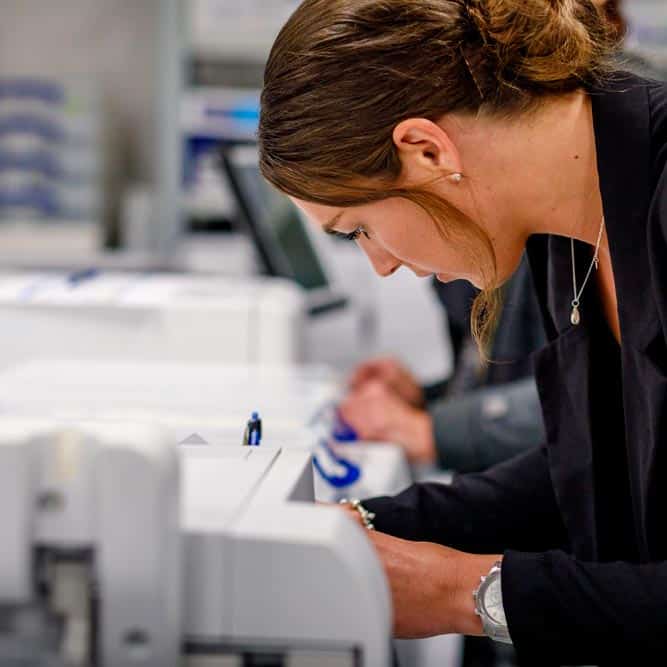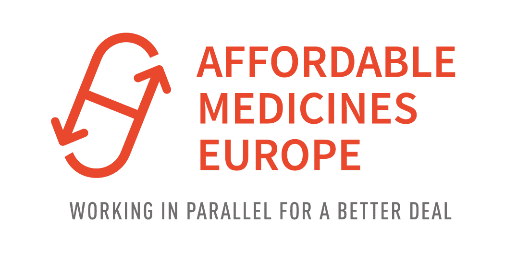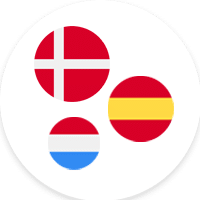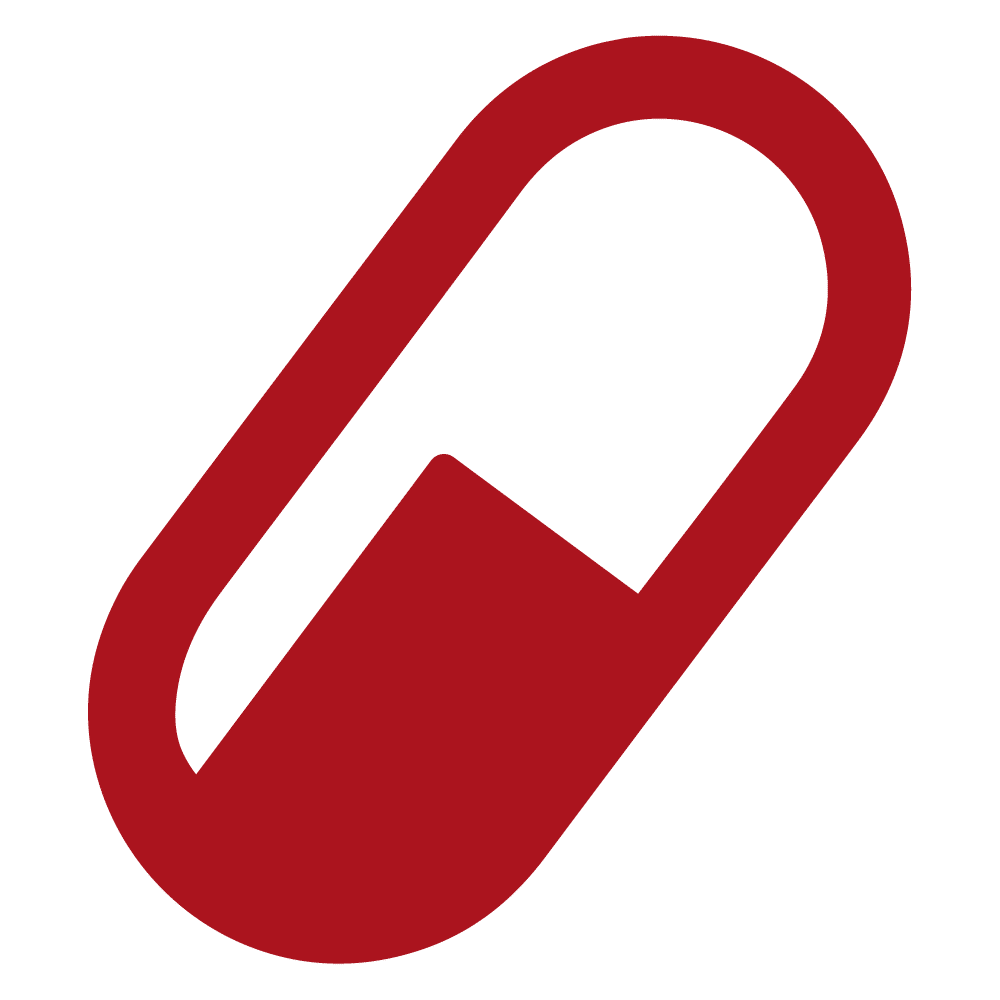Parallel Import of Medicine
Abacus Medicine offers a wide selection of high-quality medicine
Medicine at more affordable prices
Abacus Medicine supplies our customers in multiple countries with more than 22,000,000 packs of prescription medicine each year. With over 10,000 product licences and more added every day, we are able to offer pharmacies, hospitals, and wholesalers a very wide selection of high-quality pharmaceuticals.
Like thousands of current customers, you will soon notice that we supply medicine at more affordable prices and with attractive sales conditions. These benefits are available to you, because the aim of our business is to create better access to medicine.
Every hour of the day, we scan the markets in all of the EU to purchase medicine at the best prices available and deliver them to you. This is the practice commonly known as parallel import.

What is parallel import?
Parallel import, also known as parallel distribution and parallel trade, is the practice of importing original medicine from one EU country, repackaging this medicine, and reselling it at a lower price in another EU country.
This is parallel import in its most basic form. In some cases, the terms parallel distribution and parallel trade are used instead, but they all refer to more or less the same practice.
Parallel imports in the pharmaceutical industry have existed for more than 40 years. Today, the total market for parallel imports of medicine is estimated at EUR 5.5 billion. Germany is the largest market for parallel trade of medicine and represents more than half of the total market.
The majority of parallel imported medicines are sourced in high-income countries, but the sourcing distribution among EU countries covers a broad list of countries, both high-income and low-income, according to Affordable Medicines Europe.
Parallel imported medicine is the same as the original medicine. The only difference is that parallel import involves the practice of repackaging.
What this means is that a parallel importer, like Abacus Medicine, will buy the original medicine in one EU country and repackage the medicine in a new pack with print and package leaflet in the language of the destination market, so that the medicine adheres to the national legislation. Afterwards, the medicine is distributed to the end-customer in the destination market.
This means that the medicine is in fact the exact same medicine as that of the original manufacturer. The only difference is the packaging.
The outcome of parallel import is much-needed price competition in a market otherwise known for rising healthcare costs. Read more about the many benefits of parallel import.
The process behind parallel import
Parallel import of medicine is based on the principle of the free movement of goods within the EU. For Abacus Medicine, this means that we can source original medicines from across the EU and transport them to one of our repackaging facilities. Here, the medicines undergo extensive quality checks followed by the repackaging of the original medicine. The medicines are then distributed to customers across the EU at lower prices.
Sourcing in Europe:
- In order to identify customer value, such as lower prices or better availability, we monitor and analyze thousands of products every day.
- Then, we source the medicine from countries in the EU and transport it to one of our production facilities in Hungary or the Netherlands. All our suppliers have been qualified and approved.
Incoming medicine quality control:
- When the medicine arrives at our facility, it undergoes extensive quality controls, hereunder Delivery Control Report (DCR) and Falsified Medicines Directive (FMD) verification. After this, the medicine goes through the second receipt control called Medicine Control Report (MCR).
- When released by our Quality Assurance (QA) department, the medicine begins the unpackaging and repackaging processes.
Unpackaging, production of new boxes and leaflets, and FMD handling:
- The medicine is placed in a new box, specifically produced and designed for the destination market. Again, the quality is secured with our FMD-handling processes which include both decommissioning and aggregation. Here, a unique 2D barcode and anti-tampering device are placed on the pack of medicine to secure the authenticity of the product.
- All repackaged medicine is reviewed on the basis of the products’ and finished goods’ documentation. The finished good must fulfil Good Manufacturing Practice (GMP) standards, the products’ marketing authorization and national regulations before it can be released by A Qualified Person (QP) to the relevant market.
Distribution to customers:
- Our experienced distributors pick up the repackaged medicine from our warehouse facility and transport it to the customers in the destination market, while ensuring proper Good Distribution Practice (GDP) handling and temperature control throughout the journey.
Example: This map shows a snapshot of the public pharmacy purchase price of a single tablet of a specific prescription medicine.
Parallel import and price differences
Parallel import of medicine offers one of the only ways to ensure price competition in a market where patent holders otherwise have a monopoly.
Within the EU, there are substantial price differences on the exact same medicine. This is due to a complex interplay of multiple factors such as the different EU countries’ financial systems (disposable income, tax levels, demography, currency) and the highly regulated and diverse national healthcare systems (reimbursement processes, private/public sectors, evaluation of efficacy of new/old treatments).
This means that even neighboring countries with similar income levels can have substantial differences in prices on medicines.
As can be seen from the map, the prices for a single pack of medicine can vary considerably in the EU. It must be noted that the pricing landscape may look very different for other kinds of medicine, and countries with high prices for some medicines may have low prices for others.
Moreover, prices change continuously. It is this complex pricing landscape within the EU that allows parallel importers to harmonize prices on medicine and provide significant value and access to medicine across Europe.
The highest quality with parallel import
All parallel importers are subject to the same set of regulatory and quality requirements as the original manufacturers.
Parallel importers must have an EU/EEA wholesale distribution license as well as both GDP and GMP licenses, while also undergoing regular inspections and audits.
Abacus Medicine has quality and safety on the very top of our priority list. All our locations are regularly audited by the relevant health authorities. We have a substantial Quality Management System and well-described SOPs and Work Instructions.
In Abacus Medicine, we believe in a holistic approach to quality management where all employees understand and uphold the highest standard of quality in all operations.

The Falsified Medicines Directive (FMD) and Parallel import
The Falsified Medicines Directive (FMD) is a system created to ensure that all supplied medicines in the EU are safe. It ensures controlled handling of the production and trade of medicine to reduce the risk of fake medicines entering the pharmaceutical supply chain and ultimately, the patients.
A crucial part of FMD is serialization. With serialization, unique serial numbers are created for all packs or products which make them traceable.
With the introduction of the Falsified Medicines Directive in 2019, the quality of parallel imported medicine is ensured even further. Like all other medicine, parallel imported medicine must have a unique 2D barcode and anti-tampering devices to verify the authenticity of each pack of medicine and to eliminate any fear of falsification.
Abacus Medicine has been FMD compliant since the Directive’s came into force in February 2019.
Affordable Medicines Europe
Abacus Medicine is an active member of Affordable Medicines Europe.
Affordable Medicines Europe is the official non-profit organisation dedicated to parallel import in Europe. Its primary goal is to enable, safeguard and foster parallel distribution in branded medicinal products.
Every day, the members of Affordable Medicines Europe work to make medicines more affordable across Europe and thus create competition in the market for patented medicines.
You can read more about Affordable Medicines Europe here.

Why parallel import?
Parallel import has a multitude of benefits, but the main benefit is of course the price savings on each pack of medicine.
In a world where healthcare costs are rising continuously, parallel import of medicine offers a safe and efficient way to provide better access to medicines that may otherwise have been more expensive.
Offering lower prices on medicine benefits both patients, pharmacies, hospitals and public healthcare systems.
The benefits for patients
Parallel imported medicine offers patients an option to save money without compromising on safety and treatment quality.
Patients gain access to the same original medicine at a lower price without having to shift to a generic or alternative version.
This even holds for brand new medicines. Because parallel importers are subject to the same set of regulatory and quality requirements as the original manufacturers, patients can safely access the newest and best treatments at the best possible price.
The benefits for pharmacies and hospitals
Both pharmacies and hospitals can be under strict budgets. Parallel imported medicines offers an easy and sustainable way to lower costs and meet applicable quotas without compromising on quality.
Through our qualified and trusted network of authorized suppliers throughout Europe, Abacus Medicine is able to supply thousands of pharmacies and hospitals with an extensive range of medicines.
We hold more than 8,000 product licenses and more are added every day. This allows us to offer our customers a wide range of medicines within therapeutic areas such as oncology, rheumatology, antiretroviral, and many more.
Read more about how we support our customers here.
The benefits for public healthcare systems
European healthcare systems range from the almost entirely government funded to those relying primarily on private insurance. One thing, they all have in common: healthcare costs are rising as the proportion of elderly is growing.
In the current pricing landscape for pharmaceuticals, many healthcare payers in Europe struggle to limit their expenditure.
Parallel import offers a way for health payers from insurance companies to government bodies to significantly lower healthcare costs without limiting the number of available treatment options for patients, pharmacies and hospitals.
When Abacus Medicine supplies medicines at a more affordable price, the result is significant savings for patients and public healthcare budgets.


